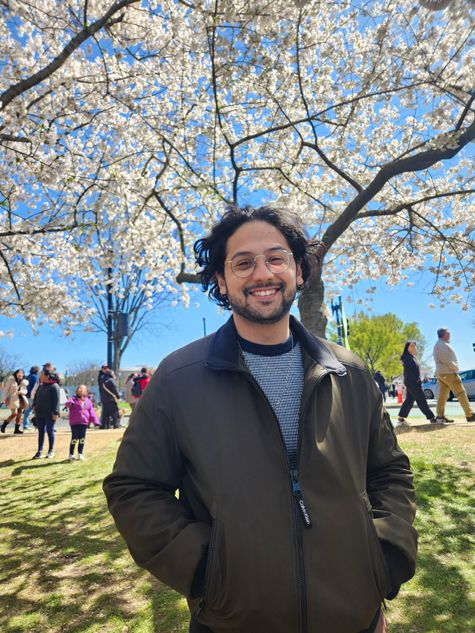Early Career Scientist Spotlight
Mr. Ashraf Dhahbi (he/him/his)
Planetary Scientist
Planetary Systems Laboratory (693)
Did you always know that you wanted to study exoplanets?
I had no clue until very recently! Growing up, I pictured myself doing a lot of different things from math to filmmaking, but astronomy was not one of them. I developed an affinity for math and physics early on, and I was very curious about astrophysics, but opportunities to study space sciences were neither prevalent nor accessible in Tunisia. My first encounter with the field was Intro to Astrophysics during my first semester at Williams College, when I discovered that math and physics get a lot weirder and more interesting in extreme astrophysical environments. To make up for lost time, I tried to explore projects in different niches from Green Pea galaxies and heliophysics at Williams, to dark matter detection at CERN. I took a University of Geneva class on Planet Formation while on study abroad in 2022 and found the topic fascinating. That summer, I started working on research with Dr. Kevin Flaherty on protoplanetary disks, the birthplace of planets. My work with Kevin nurtured my interest in exoplanets and encouraged me to delve deeper into planetary science.
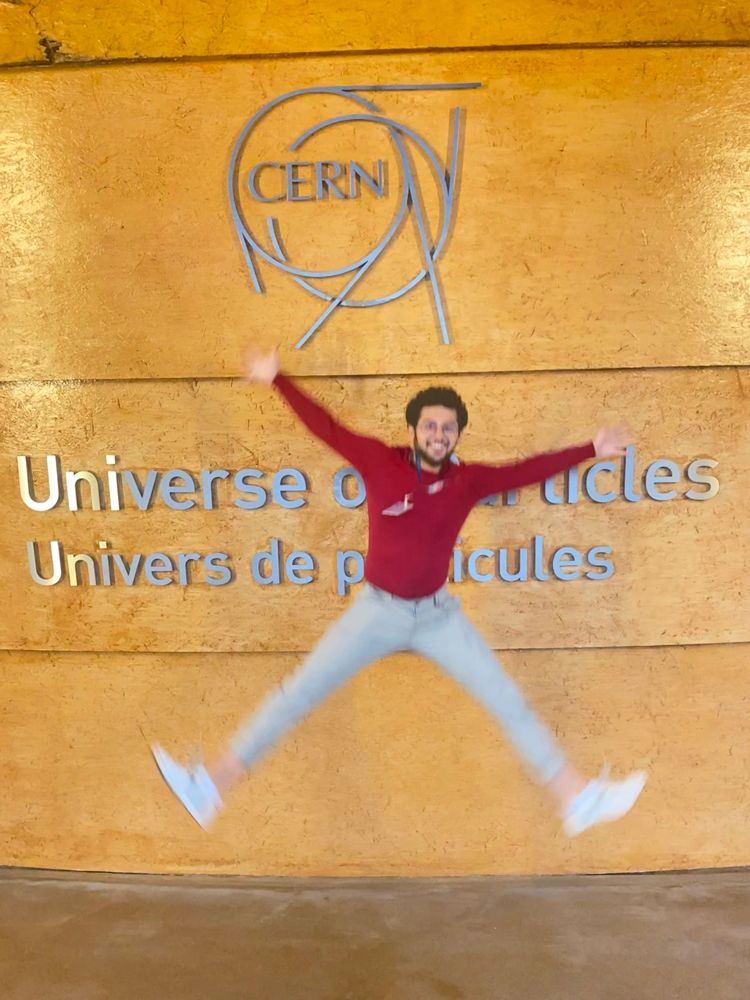
Credit: Angela Thevenin
How did you end up working at NASA Goddard?
I enjoyed working on my senior thesis research at Williams, but I was often frustrated with how little time I could allocate to it while dealing with other classes and graduation requirements. I started looking for post-baccalaureate research positions to experience full-time research and to help me decide whether I wanted to pursue a PhD. However, none of the post-bac postings I found would give full consideration to international students. It was very discouraging to see that, despite getting my bachelor’s from a competitive U.S. school and having work authorization, I still did not have access to the same opportunities. I fortunately ran into SURA’s (Southeastern Universities Research Association) ad on the American Astronomical Society (AAS) job register in the spring, and I was offered the chance to work at Goddard. This has been a great opportunity to gain more experience in the field and work with some amazing people, and I hope more positions like it can be available to international students!
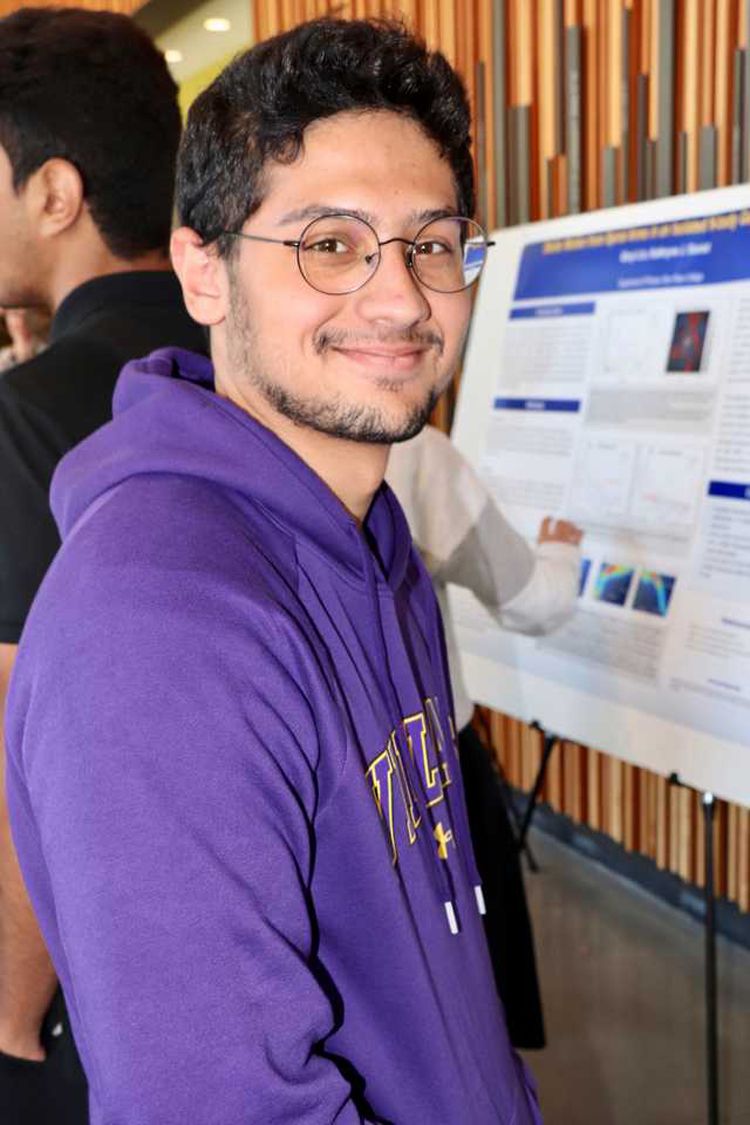
Credit: KNAC
Tell us about the research projects you are currently working on.
I’m working with Dr. Avi Mandell and the ExoPSG group at Goddard. The goal of the research is to scientifically motivate the Mid-IR Exoplanet CLimate Explorer (MIRECLE) mission concept, which will try to characterize the atmospheres of rocky planets around nearby M-dwarf stars. MIRECLE will have broad wavelength coverage (1-18 micron, Mandell et al. 2022, AJ) and therefore will produce spectra simultaneously spanning both the star (shorter wavelengths) and planet (longer wavelengths) in wavelength space. This data would lend itself to Planetary Infrared Excess (PIE). In this method, we fit stellar models to the short wavelength range that contains purely stellar emission, extrapolate them to longer wavelengths, and subtract the extrapolated stellar emission from the observed data to isolate the planetary emission. The main challenge here is that the excess planetary emission in the infrared is very small relative to the stellar flux. An accurate fitting of the stellar models, including stellar variability, is therefore necessary. For that purpose, I have been working on a pipeline to fit a simplified grid-based variable star model to stellar flux data. The model uses a linear combination of interpolated PHOENIX (stellar atmospheric modeling code from Husser et al. 2013, A&A) spectra to simulate dark spots, faculae and flares. As the project advances, I’m working on efficiently fitting the grid model to JWST data.
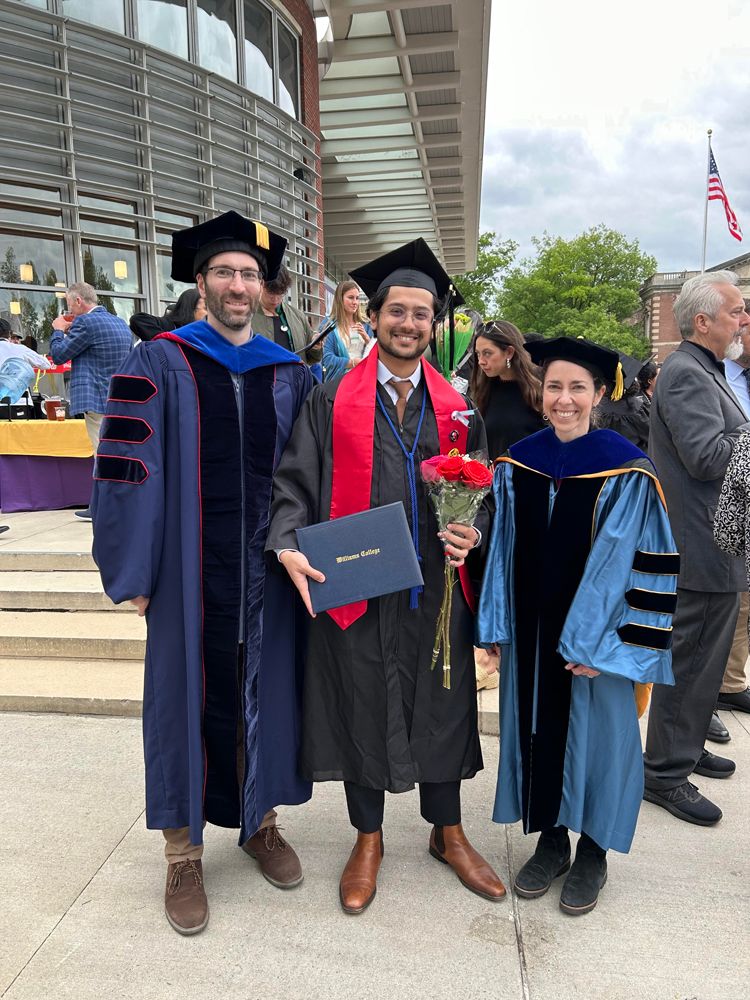
Credit: Ashraf Dhahbi
What skills are most useful to you in your work, and where did you develop those skills?
My research work involves modeling and model-fitting techniques, which is the reason why I gravitated towards planetary science! At Williams, I would oscillate between focusing on Math and focusing on Astrophysics. I realized I could do both when I started working with Dr. Kevin Flaherty on the fitting of protoplanetary disk models to constrain turbulence (a non-thermal random component of the motion in a protoplanetary disk)! My undergraduate thesis work expanded our constant-turbulence disk model to a spatially variable turbulence model. I then used a Markov Chain Monte Carlo (MCMC) approach to fit the model to ALMA data of the IM Lup protoplanetary system. Probability has always been my favorite area of math, so I find probabilistic and Bayesian approaches to model-fitting super interesting! I’m delving deeper into nested sampling now and I plan to keep exploring similar techniques!
What aspect(s) of your work are you most passionate about?
In addition to my current research, I am part of the Goddard-based Exoplanet Modeling and Analysis Center (EMAC) team. EMAC is a catalog and repository for open-source exoplanet science software, designed with the goal of encouraging researchers to adopt the Open Science approach and with the aim to lower the barrier for early career scientists into the field. EMAC has been a great space to engage in science communication, which I’ve grown to love! I hosted shows at the Williams College planetarium – notably one with a group of Boy Scouts who PANICKED when I mentioned that stars eventually die… It was exciting to share my passion for outer space with the Williams community and see the public’s enthusiasm about astronomy. In an effort to share this passion in Tunisia, I have been working with the Tunisian Space Association (TUNSA) to make the field more accessible to Tunisian students and provide them with resources and opportunities. I believe the community has been progressing in a good direction when it comes to equity and inclusion, but I would love to see the efforts spread beyond the U.S. and the west.
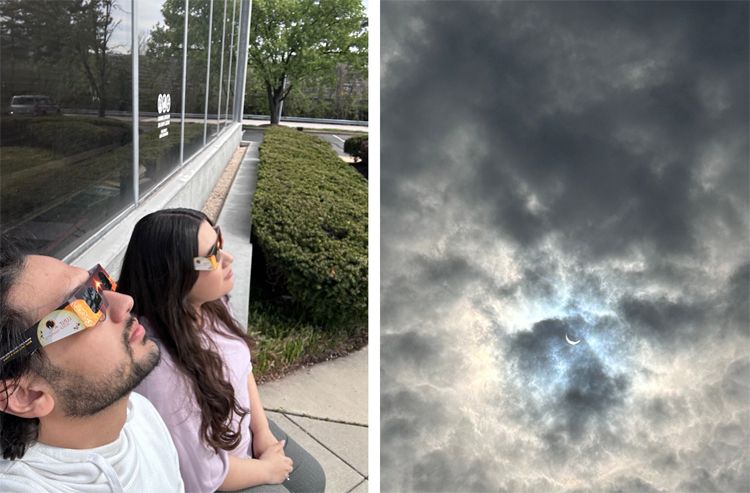
Credit: Ashraf Dhahbi
If you were to expand your current research focus, what new topic(s) would you explore?
My undergraduate research studied fluid protoplanetary disks, and my current research is interested in fully formed, discrete planets. In the future, I hope to extend my work to the intersection, considering both the fluid dynamics and the discrete nature of planet formation. I want to explore how the physics of a protoplanetary disk undergoing early stages of planet formation can impact its chemistry and affect the potential habitability of its planets. Starting next fall, I will be working with Dr. Fred Ciesla at UChicago to look into some of these questions!
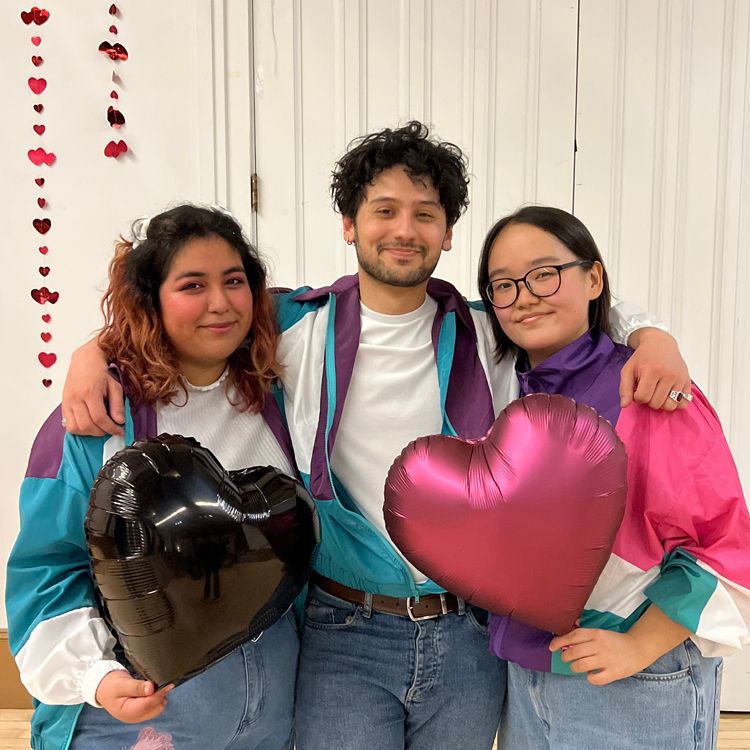
Credit: Erinn McKenzie
What do you like to do in your free time?
As an international student who has been in the U.S. for almost 5 years now, I have wrestled quite a bit with homesickness. Cooking has been a great way to give me a literal taste of home and help with that! Some of my go-to's are: Mlewi (a semolina-based flatbread), Lubya (a spicy bean stew) and Ojja (poached eggs in a spicy tomato sauce). I will soon try to tackle Couscous, our national dish! Tunisian cuisine is unfortunately not very prevalent in the U.S. but do give it a try if you get the chance!
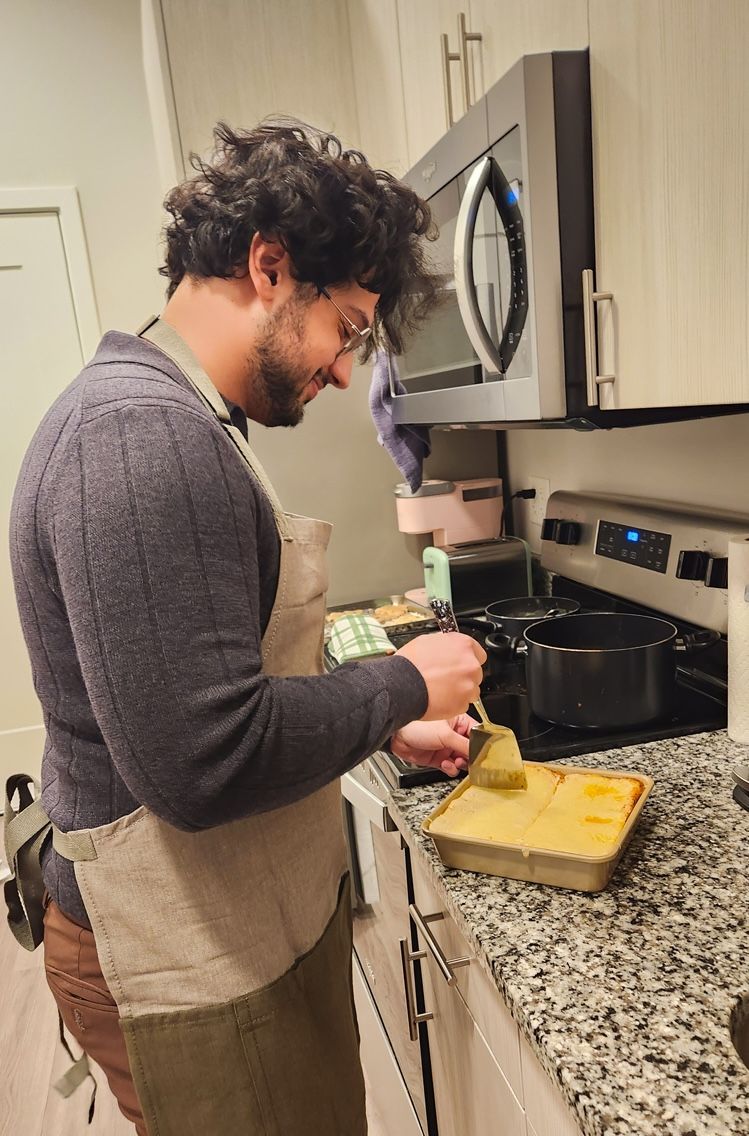
Credit: Ashraf Dhahbi
Biography
Home Town:
Ariana, Tunisia
Undergraduate Degree:
B.A. in Astrophysics and Mathematics, Williams College, MA
Post-graduate Degrees:
Starting in Fall of 2024: Geophysical Sciences PhD Candidate, University of Chicago, IL
